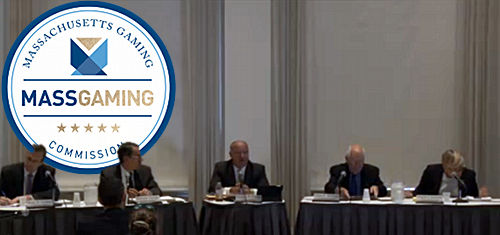 The CEO of daily fantasy sports operator FanDuel has issued a public call for legislators to impose regulation on his industry, provided such oversight is not too onerous and nobody calls it gambling.
The CEO of daily fantasy sports operator FanDuel has issued a public call for legislators to impose regulation on his industry, provided such oversight is not too onerous and nobody calls it gambling.
In a letter to FanDuel customers, Nigel Eccles said the DFS industry had grown sufficiently large that it needs “strong, common sense, enforceable consumer protection requirements to ensure its continued growth and success.”
Eccles said such protections would include age and location verification, segregation of player funds from the sites’ operating capital, data protection, third-party audits and “safeguards against use of proprietary contest information,” the latter item a reflection of the DraftKings’ data leak controversy that sparked this month’s media feeding frenzy on DFS.
Eccles said some “smart, but tough proposals” were emerging in state legislatures that he believed would serve as “the basis for the sensible regulation of the fantasy sports industry.” Both FanDuel and DraftKings have publicly supported this week’s proposal by Illinois state Rep. Mike Zalewski to require DFS operators to adhere to certain “consumer protections” while sparing them from being labeled as gambling businesses and taxed accordingly, like Pennsylvania has proposed.
Eccles also pushed back against “some lawmakers” who he claimed were “seeking to prohibit [players’] right to play fantasy sports as you know it.” In addition to lawmakers, there are a number of state and federal law enforcers currently investigating the DFS industry and Eccles asked FanDuel’s players to sign a petition “to remind officials how deep and wide the support for fantasy sports is across the country.”
MASSACHUSETTS HEARING TAKES AIM ON DFS
Thursday also saw an open meeting of the Massachusetts Gaming Commission (MGC) address the DFS controversy, the first such state-level examination of the industry. Massachusetts’ attorney general has declared that she believes DFS operators aren’t breaking any state laws but they’re also not paying any tax on their revenue and some state pols would like to see that change.
MGC chairman Stephen Crosby announced at the outset that the MGC wasn’t the decision makers on policy questions. The MGC could offer insight into whether or not DFS should be regulated but legislators would have to make the final call. Crosby suggested that the MGC needed to view DFS in “philosophical terms,” i.e. does DFS require its own regulation when the state already has consumer protection laws.
MGC staff attorney Justin Stempeck noted that there was nothing in Massachusetts’ regulatory or case law history that really matched DFS’ footprint. Stempeck said there was a gap in defining what is and isn’t a ‘bet’ under state laws but believed the state’s betting pool law “had the potential to apply” to DFS.
Commissioner Enrique Zuniga struck the most emphatic tone for imposing regulations on DFS, saying there were “enough similarities” to other forms of gambling to warrant intervention. Zuniga also wondered why the state prohibited anyone under 21 years old from gambling at a casino while DFS operators’ cutoff was 18 years, and why you could use a credit card for DFS while the option wasn’t available at state casinos.
Zuniga also waded into the ‘skill game’ argument, warning that assuming DFS wasn’t gambling because of its alleged reliance on skill could lead to unintended consequences down the line as new forms of gambling attempted to exploit the skill loophole.
Commissioner Bruce Stebbins expressed concern over the lack of a formal complaint process on the main DFS sites, as well as the fact that the sites’ terms and conditions prohibited players from engaging in class action lawsuits.
Commissioner James McHugh, who delivered a lengthy preamble on the US online gambling landscape, believed that “any vehicle by which lots of money can be transferred” between individuals needed oversight by an external body. As with gambling and securities trading laws, McHugh said it was essential to promote consumer confidence by ensuring that the integrity of the process was legit.
Commisioner Gayle Cameron related her experiences attending recent gaming conferences at which DFS was discussed at length, and said she came away “certainly convinced” that DFS required regulation.
Mindful that DraftKings is based in Boston, Crosby warned that imposing new DFS taxes and fees could “kibosh” the DFS sector “by accident.” But Crosby also warned that Massachusetts’ new casino licensees had a right to sit at the table while this discussion continued to ensure the state wasn’t changing the competitive rules of the road after the fact.
The MGC never intended to take any kind of vote on Thursday and the best Crosby could offer was to suggest assembling a team of experts to study the issue. Crosby wants to produce a white paper that would give legislators the right questions to ask, then let legislators provide their own answers. Crosby said he believed this white paper could be assembled within a “very few number of weeks.”
